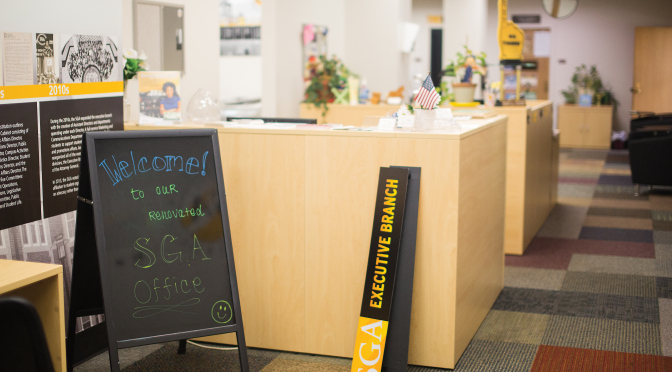
Students learn about cultural appropriation
By: Kearstein Johnson, Contributing Writer
Towson’s Student Government Association tackled the issue of cultural appropriation in regard to Halloween costumes with their “Appropriation is Spooky” event on Oct. 30.
Cultural appropriation is when a person adopts elements from a culture that is not their own, which is often seen as a harmful way to misrepresent one’s culture.
SGA held their event to inform students about the harms of cultural appropriation. In addition, during the month of October, posters showing examples of cultural appropriation with the statement “Our cultures are not costumes” were hung up around campus.
SGA Director of Diversity and Inclusion Russhell Ford came up with the idea for the event to bring more awareness to the issue of cultural appropriation.
“It should be something talked about and addressed since we are in fact a multicultural country,” Ford said. “This social issue has been around for decades with little acknowledgement given to it.”
Ford said Halloweentime acts as a good way to make students more culturally competent.
“We want to educate students in hopes of making them more culturally competent,” she said. “It’s easier to do this around Halloween and it makes it a little more fun. People are unaware of certain political issues and the historical background of these people they are portraying.”
Juan Melgar, a senator for the SGA, felt cultural appropriation is a way of attacking someone’s culture.
“It’s extremely offensive to attack someone’s culture, and it’s an absolute problem in America,” he said. “People are using these costumes for their own amusement.”
For Melgar, cultural appropriation being taught and discussed is a step in the right direction.
“This issue is becoming more aware and spoken about,” he said. “At the very minimum I want to give one person the knowledge to not appropriate someone’s culture.”
SGA Assistant Director of Diversity and Inclusion Ola Ibraheem noted the difference between appropriating one’s culture and celebrating one’s culture through a costume.
“What made us plan this is that during Halloween there is a problem with appropriating costumes,” Ibraheem said. “[What] we are trying to accomplish in teaching others [is] that it is okay to pay tribute to someone’s culture in an appropriate and respectful way.”
Ibraheem acknowledged the distinction between offensive and non-offensive costumes.
“I feel like over the years, our generation has brought acknowledgement to this problem our society has.” Ibraheem said. “There is always a problem with the thin line of what exactly is offensive and what isn’t.”

